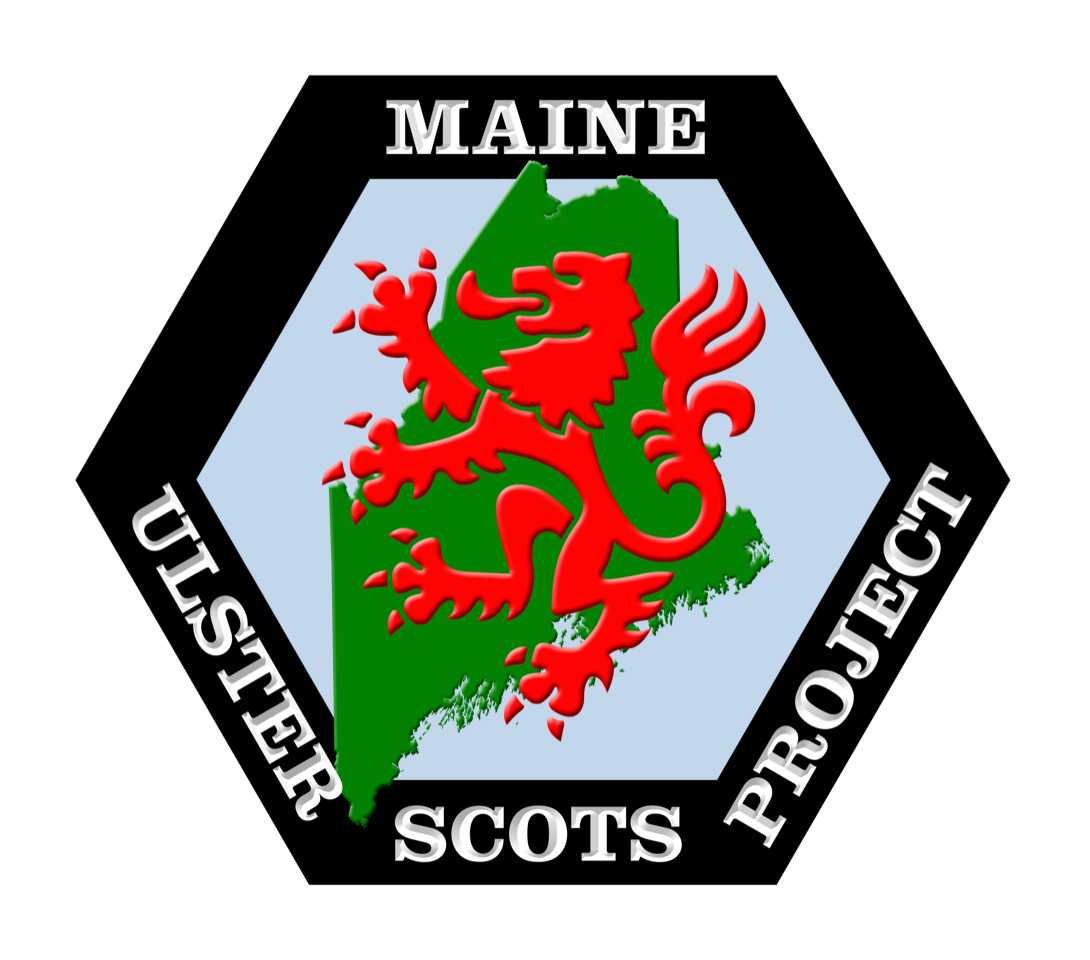Several ships left the north of Ireland bound for New England in the summer of 1718. Arriving in Boston, the weary families were not exactly welcome by the Puritan leadership. Instead, it was strongly “suggested” they find other places to settle. Some found refuge in towns surrounding Boston; others made the 40-mile trek out to Worcester, Mass, and two ships headed to the coast of Maine.
Researchers say one ship – the “MacCallum” discharged its passengers along the Kennebec River & into Merrymeeting Bay in September / October. Families hurried to build their new homes including the McFadden family. Their long-lost homestead at Somerset point has been the site of our eight year archaeological dig.
It’s told the second ship – the “Robert” investigated the Maine coast that fall and got caught in early winter ice in Casco Bay, on what is currently the South Portland side of the Fore River. Here some settlers built crude shelters, while others stayed aboard ship for the winter. When spring arrived, a few of these families left for Nutfield, New Hampshire, but many more families stayed in Maine.
When we think about these family’s saying goodbye to their homeland, we reflect on the communities they left behind and the hardships these folks endured when they arrived in their new home. Encouraged by land agents who needed settlers and after suffering months at sea, they were not welcomed on arrival as expected. Unprepared for the early and bitter winter in Maine, they struggled to quickly build shelter catching most off guard and freezing one ship in the ice. In Falmouth (now Portland), there was such a scarcity of food that the Massachusetts Court voted to supply 100 bushels of Indian corn so they wouldn’t starve to death.
Like many other displaced Scots, those who arrived in 1718 brought a strong culture with them. This fusion culture had been conceived in Scotland, "forged" in Ireland, and was used to recreate a “hame” in the New World.
Before they scattered in early April, they assembled for one final worship service together. Listening to either Rev. Woodside or Rev. Cornwall, the subject of the sermon was the Old Testament plight of the Israelites in Babylon. As they gathered, they may have sat and wept when they remembered home and pledged never to forget where they came from.
And they did not. The Scotch Irish culture that they brought with them has been, over time, woven into the fabric of everyday American life. It has been passed down to us, in a thousand little and large ways, every day, through the centuries.
Some of the settlers departed and would settle Nutfield (Londonderry), New Hampshire. Most of the families stayed in Casco Bay; names like Armstrong, Barbour, Bolton, Elder, Gray, Giles, Jameson, Mann, Maxwell, McCausland, McLellan, Means, Miller, Simonton, and Slemons. Rev. Cornwall, seemingly without financial support, soon returned to Ireland. Rev. Woodside was called to the church in Brunswick, Maine, before he too returned to Ireland.
The attached hymn, “Shall We Gather at the River” is based upon an old Scotch-Irish melody, written by Robert Lowry, sung by Burl Ives, Scotch-Irish American folksinger. It seems like a fitting remembrance of this worship service along the shore of Fore River before dispersing into the wilds of New Hampshire and Maine. https://www.youtube.com/watch?v=psK1ApIT92Y
Adapted from Oct. 2018 article by Dr. Mary Drymon-DeRose, Scotch-Irish Historian, South Portland, Maine USA
As part of the 1718-2018 Ulster-Scots Diaspora Reunion, we had the opportunity to take 30 attendees on a bus tour of Portland (originally Falmouth) and South Portland (originally Purpooduc). Among the stops was a visit to what we believe is the cove that the ‘Robert’ was trapped in the ice in the winter of 1718-19.
Prepared by Dave McCausland






